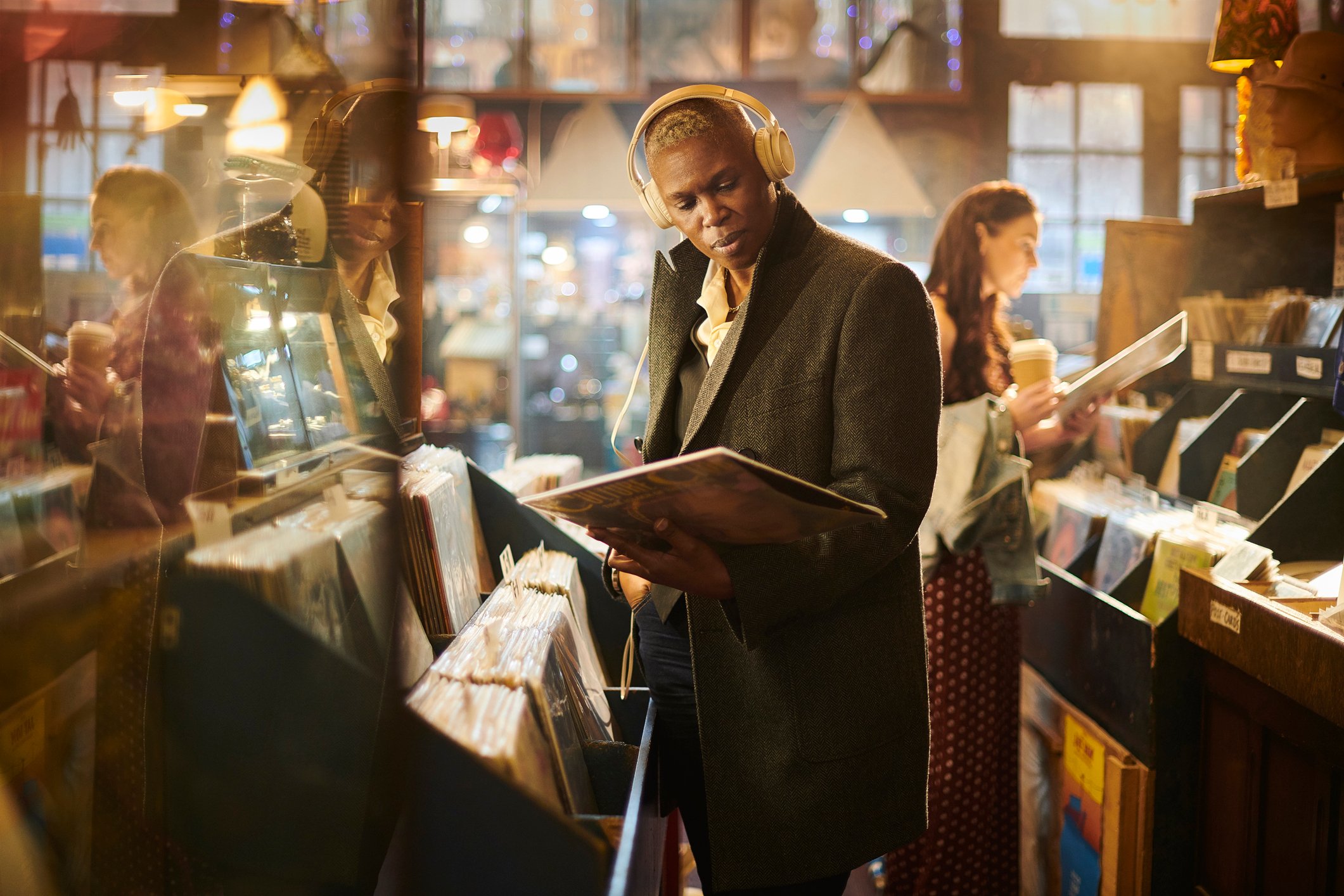There’s a lot to love about shopping for vinyl. The warmth of a bustling record shop on a cold day. The mystery of what might be hiding in the bins. The jolt of coming across that LP or 7” you never thought you’d find.
Considering the sensory and emotional zing of record shopping, it’s no wonder vinyl’s having a major resurgence among music lovers. (Taylor Swift releasing multiple versions of every one of her albums hasn’t hurt, either.)
Vinyl sales in Canada doubled between 2019 and 2021, and then rose another 26% in 2022. In 2023, vinyl sales in the U.S. hit their highest point since 1991 and represented the majority of physical album sales.
If your love affair with records just started, know that you’ve fallen for an increasingly expensive hobby. Inflation hasn’t spared vinyl; high shipping costs and a weak Canadian dollar have driven prices higher, too.
Those aren’t forces you can control, but there are several ways to reduce the cost of your new addiction.
1. Prioritize shops that sell used vinyl
There are instances where a hard-to-find used version of an album will be priced higher than a new re-issue, but as long as you aren’t crate-digging for a total rarity, you will almost always save money buying used versus new.
Reputable record shops are careful about the condition of the used records they stock, so you shouldn’t need to worry about taking home something scratched-up and unplayable. Used records will usually be unsealed, so feel free to tip the record out of its sleeve and check it out in the light to make sure it’s clean.
Another advantage of buying used is that many stores will let you sample an unsealed, used record before purchasing it. If you’re not sure about dropping $30 or $40 on a record you’re unfamiliar with, ask for a quick spin on the store’s sound system. If that’s not an option, take your phone and earbuds with you so you can perform a digital taste test on your chosen streaming platform.
Don’t forget to hunt the bargain bins at used record stores, where beaten-up copies of good records might wind up. And consider following local stores on Instagram to find out about sales or newly arrived stock.
2. Get out to record fairs, estate sales and pawn shops
Record stores are just the tip of the dusty, black iceberg when it comes to finding used vinyl.
Another great place to find pre-loved albums is a record fair, where collectors converge to swap and sell highly curated and generally well-cared-for collections. One of the benefits of going to a record fair is dealing one-on-one with sellers, who may offer more price flexibility than a store.
Estate sales and pawn shops can be decent sources for old vinyl, too, but it’s best to keep your expectations in check. You never know what you’re going to get at an estate sale that promises “lots of old records.” The condition of records at a lot of pawn shops might sometimes qualify as a hate crime.
3. Buying new vinyl? Shop around
If it’s new vinyl you’re hunting for, one way to save a few bucks is by comparing prices among local and online retailers. Some large record stores allow you to search their inventory of new stock online; others, you can simply call or email.
It might be anathema to a die-hard record nerd, but if cost is an issue, don’t hesitate to look online for new vinyl. Record prices on sites like Amazon aren’t quite as low as they were a few years ago, but you might be surprised by what’s available.
4. Crunch the numbers when ordering directly
When there’s a particular record you can’t wait to get your hands on, one way to obtain it is by ordering it directly from the label releasing it or a distributor that stocks it.
Being a Canadian record nerd, however, often means paying for an album and shipping costs in foreign currency. Before hitting “submit” on your online order, it’s not a bad idea to run the total through a currency converter to make sure you’re not paying more than you’re comfortable with.
One way to cut back a little on the cost of direct shipments is by ordering the records you want through a local record shop. You won’t have to pay to have your records shipped individually, nor will you have to pay any credit card currency conversion fees.
5. Account for vinyl in your monthly budget
If records have only recently become a regular expense, it’s important that the amount you spend doesn’t warp your monthly budget. Buying one new record a week at today’s prices could easily cost over $120 a month. That’s not nothing.
Establishing a vinyl budget can also help you avoid credit card overuse and compounding interest charges. The spell a record puts you under might be priceless, but that doesn’t mean you should pay more for it than necessary.
DIVE EVEN DEEPER

How Does “Buy Now, Pay Later” Work in Canada?
Buy now, pay later is a point-of-sale financing option that divides the total cost of a purchase into several smaller payments, often without charging interest or fees.

Bad At Budgeting? Try This Banking Trick Instead
For reluctant budgeters, automation can be the difference between wanting to save for the future and actually seeing your money grow.

A Subscription Audit Saved Me $1,800 a Year — Here’s How to Do It
Eliminate subscription bloat by reviewing bank statements and digital wallets, identifying recurring charges and downgrading or cancelling what you no longer need.

If Your Budgeting App Is Shutting Down, Consider Going Retro
Find out why some financial advisors say a budget that only tracks expenses is incomplete. Here’s how to better plan for your financial future — with or without an app.

